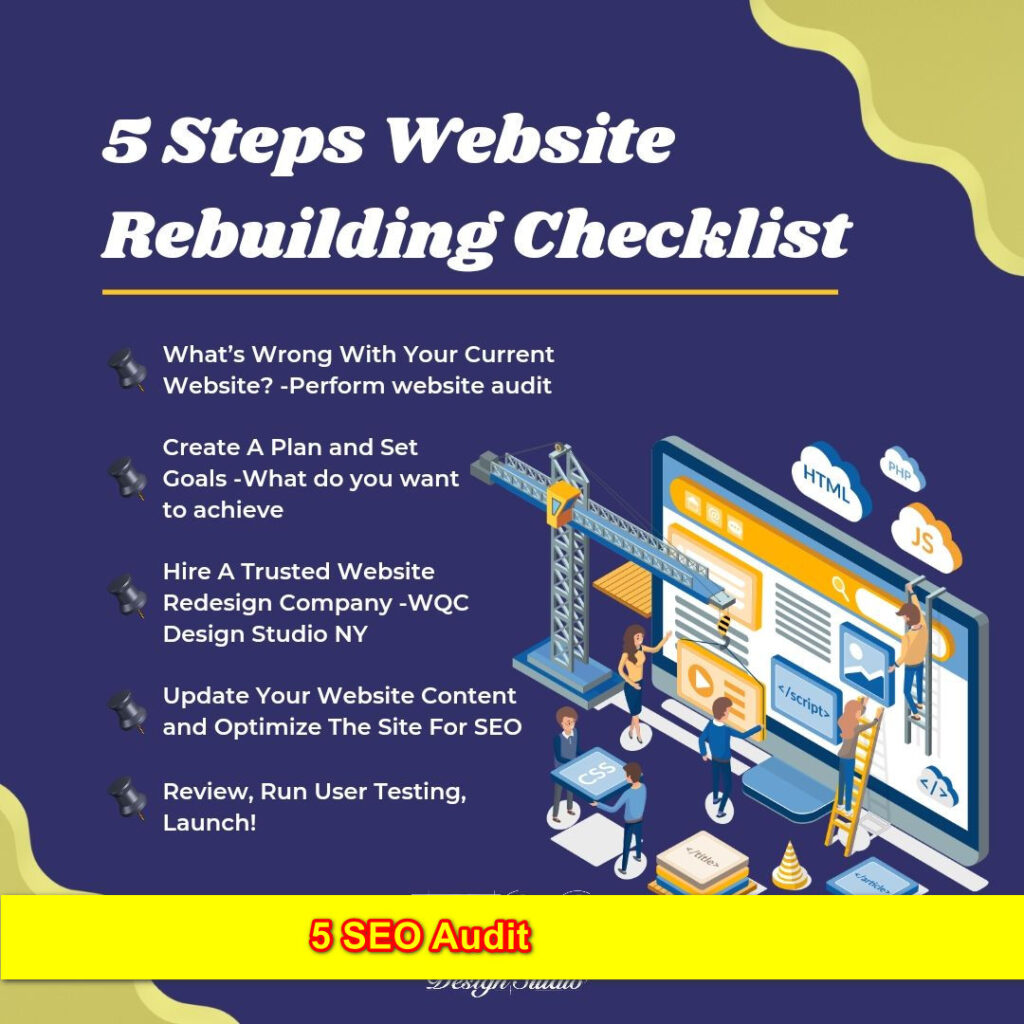When it comes to SEO audits, there are certain must-haves that you should always look for. These five factors will give you the best chance at improving your SEO practices and ensuring that your site is optimised for search engines.
1. Check for keyword density
One of the first things to check for is whether your website has the right keyword density. This refers to the number of times a keyword appears on a page in relation to the total number of words on the page.
Your keyword density should be around 1-2%, but this will vary depending on the length of your page and the nature of your keywords. If your keywords are too dense, it will be difficult for readers to comprehend your content and you could be penalised by search engines.
2. analyse your titles and descriptions
Your titles and descriptions are important for both search engines and readers. They should be concise and accurate, and they should contain your target keywords.
You should also check that your titles and descriptions are unique to each page on your website. If they are not, you could be penalised by search engines for duplicate content.
3. Check for broken links
Broken links can frustrate readers and damage your search engine ranking. Use a tool like Screaming Frog to check for broken links on your website and fix them as soon as possible.
4. Check your website’s speed
Another important factor to consider is your website’s speed. Search engines consider website speed when determining ranking, so it’s important to make sure your site is as fast as possible.
You can use tools like GTmetrix and Pingdom to check your website’s speed and identify areas for improvement.
5. Check for mobile-friendliness
More and more people are accessing the internet on mobile devices, so it’s important to make sure your website is mobile-friendly. Google has a mobile-friendly test that you can use to check your website.
If your website is not mobile-friendly, you could be penalised by search engines and lose visitors.
By following these SEO best practices, you can improve your website’s ranking and visibility in search engines. This will help you to attract more visitors and generate more leads and sales for your business.
SEO best practices are essential if you want your website to rank well in search engines. By following these guidelines, you can improve your site’s visibility and attract more visitors.
There are many factors to consider when optimizing your website for search engines. However, there are five key areas that you should focus on when auditing your site’s SEO:
1. Title Tags
Your title tags are one of the most important elements of your website’s SEO. Make sure that your titles are unique and accurately describe the content on your page. using relevant keywords will also help to improve your ranking.
2. Meta Descriptions
Your meta descriptions are another important element of your website’s SEO. These should be unique and provide a brief summary of the content on your page. Including relevant keywords will help to improve your ranking.
3. Headings
Headings are an important part of your website’s structure and can help to improve your SEO. Use clear and descriptive headings to help search engines understand the structure of your website and improve your ranking.
4. Content
Your website’s content is one of the most important factors for your SEO. Make sure that your content is relevant, well-written, and informative. including relevant keywords will help to improve your ranking.you need a content writter plase contact Our team.
5. URLs
Your website’s URLs are an important part of your website’s SEO. Make sure that your URLs are well-structured and use relevant keywords. using hyphens to separate words will help to improve your ranking.
By following these SEO best practices, you can improve your website’s ranking and visibility in search engines. This will help you to attract more visitors and generate more leads and sales for your business.SEO is a process of optimizing a website for Google search with the goal of earning higher web traffic levels and improving the visibility of the site. There are a number of different factors that can influence your website’s ranking on Google, and it’s important to consider all of them when auditing your site. Here are five essential SEO audit “must-haves” to keep in mind:
1. Title Tags: One of the most important elements of on-page optimization is the title tag. This is the text that appears in the search engine results pages (SERPs) when your site comes up. Make sure that your title tags are unique, accurate, and include relevant keywords.
2. Meta Descriptions: In addition to your title tag, your meta description is another important factor in on-page optimization. This is the brief description that appears beneath your title in the SERPs. Again, make sure that your meta descriptions are unique, accurate, and include relevant keywords.
3. H1 Tags: H1 tags are HTML elements that indicate the title of a page or section. They are typically used to structure the content on a page. When it comes to SEO, H1 tags are important because they can help to improve your click-through rate (CTR). Make sure that your H1 tags are accurate and relevant to your page content.
4. Image Alt Text: Google is able to index images, so it’s important to include relevant keywords in your image alt text. This will help your images to appear in image search results, which can generate additional traffic to your site.
5. Site Structure: The structure of your website can also impact your SEO. A well-organized website with a clear hierarchy is easier for Google to crawl and index. This can lead to improved rankings and visibility in the search results.
By following these SEO best practices, you can improve your website’s ranking and visibility in search engines. This will help you to attract more visitors and generate more leads and sales for your business.


